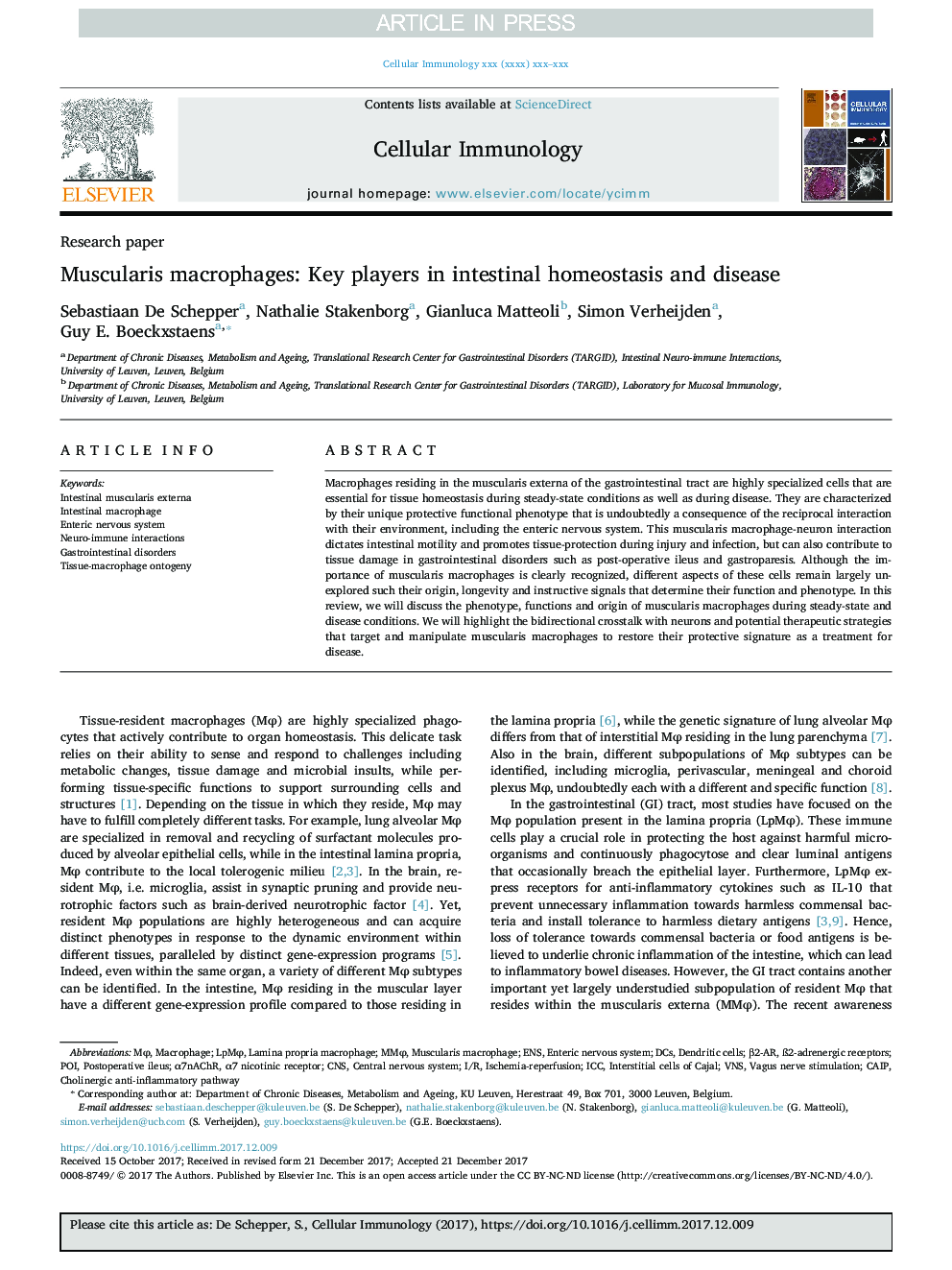| Article ID | Journal | Published Year | Pages | File Type |
|---|---|---|---|---|
| 8943870 | Cellular Immunology | 2018 | 9 Pages |
Abstract
Macrophages residing in the muscularis externa of the gastrointestinal tract are highly specialized cells that are essential for tissue homeostasis during steady-state conditions as well as during disease. They are characterized by their unique protective functional phenotype that is undoubtedly a consequence of the reciprocal interaction with their environment, including the enteric nervous system. This muscularis macrophage-neuron interaction dictates intestinal motility and promotes tissue-protection during injury and infection, but can also contribute to tissue damage in gastrointestinal disorders such as post-operative ileus and gastroparesis. Although the importance of muscularis macrophages is clearly recognized, different aspects of these cells remain largely unexplored such their origin, longevity and instructive signals that determine their function and phenotype. In this review, we will discuss the phenotype, functions and origin of muscularis macrophages during steady-state and disease conditions. We will highlight the bidirectional crosstalk with neurons and potential therapeutic strategies that target and manipulate muscularis macrophages to restore their protective signature as a treatment for disease.
Keywords
α7nAChRPOIVNSCAIPβ2-ARENSDCsICCI/RMϕα7 Nicotinic receptorGastrointestinal disordersischemia-reperfusionvagus nerve stimulationneuro-immune interactionsCNSDendritic cellsinterstitial cells of Cajalenteric nervous systemcentral nervous systemMacrophageCholinergic anti-inflammatory pathwayPostoperative ileus
Related Topics
Life Sciences
Biochemistry, Genetics and Molecular Biology
Cell Biology
Authors
Sebastiaan De Schepper, Nathalie Stakenborg, Gianluca Matteoli, Simon Verheijden, Guy E. Boeckxstaens,
